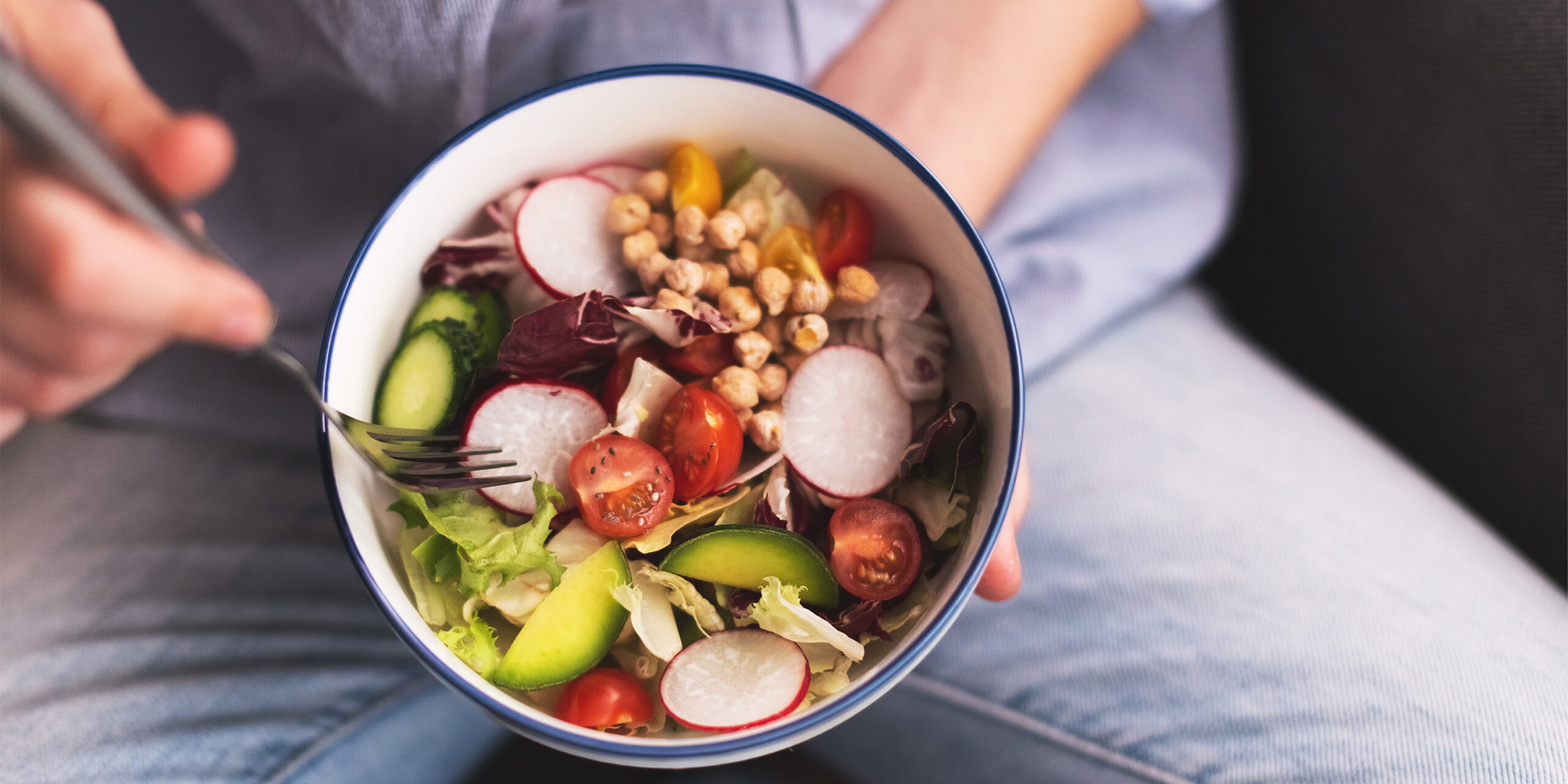By Danielle Johnson, RDN, CDN, RYT
This year’s National Nutrition Month theme is “personalize your plate,” highlighting the fact that we are all different. While there are basic guidelines on how to be healthy, it can still look very different from person to person. Whether we are looking at your health goals, your culture, or your preferences, we all have our own unique eating style.
When it comes to our physical body, there are multiple reasons why our needs can vary. Men traditionally require more energy (calories) compared to women due to their natural build. Men naturally have more muscle on their bodies, which requires a higher amount of energy. In general, the more muscle on your body, the more energy needed to sustain the body (regardless of gender). The size of your body also dictates the amount of energy you need based on your height and weight.
Your goals for your body will also affect your caloric requirement and the way you build your plate (lose weight, gain weight, maintain weight, build muscle). Most importantly, don’t forget your own taste preference – we can like what we like! Just because your best friend loves kale in everything does not mean you have to love kale in everything. It is okay to not like certain foods even if they are touted as “superfoods.”
Being that food is a constant in all human life, every culture and religion has a focus around food. Each culture’s foods are unique and include different sources of vegetables, fruits, grains, proteins (animal or plant), fats, herbs and spices depending on the region and what they can grow or acquire. Before fast food, the traditional food here was Native American food. Today our foods represent the cultures of England, Canada, Africa, France, the Caribbean, Spain, Germany, Italy, Scandinavia, Mexico, China and Japan. Regardless of your background, it is possible to develop a healthy meal pattern that is tasteful based on your goals, preferences and culture.
Rising numbers of obesity in our culture have resulted from changes in our lifestyles. Hundreds of years ago there was a lot less food processing, GMOs, pesticides and other chemicals in our food, which can influence our overall health and body weight. We are also much more sedentary now compared to 100 years ago (less movement, less energy used). Fast food has also increased significantly across the entire globe, providing greater access to nutrient-poor, calorie-dense foods.
Despite all that, we are lucky to live in place with the wide array of food, culture and education at our fingertips. Working with a dietitian can be very helpful in making healthy tweaks while maintaining flavor so you can enjoy your favorite foods and reach your health goals regardless of where you are from, who you are or where you are headed.
Danielle Johnson, RDN, CDN, RYT is a registered dietitian who works in the Bariatric Center of Excellence at Mather Hospital where she specializes in surgical weight loss and medical weight management.

